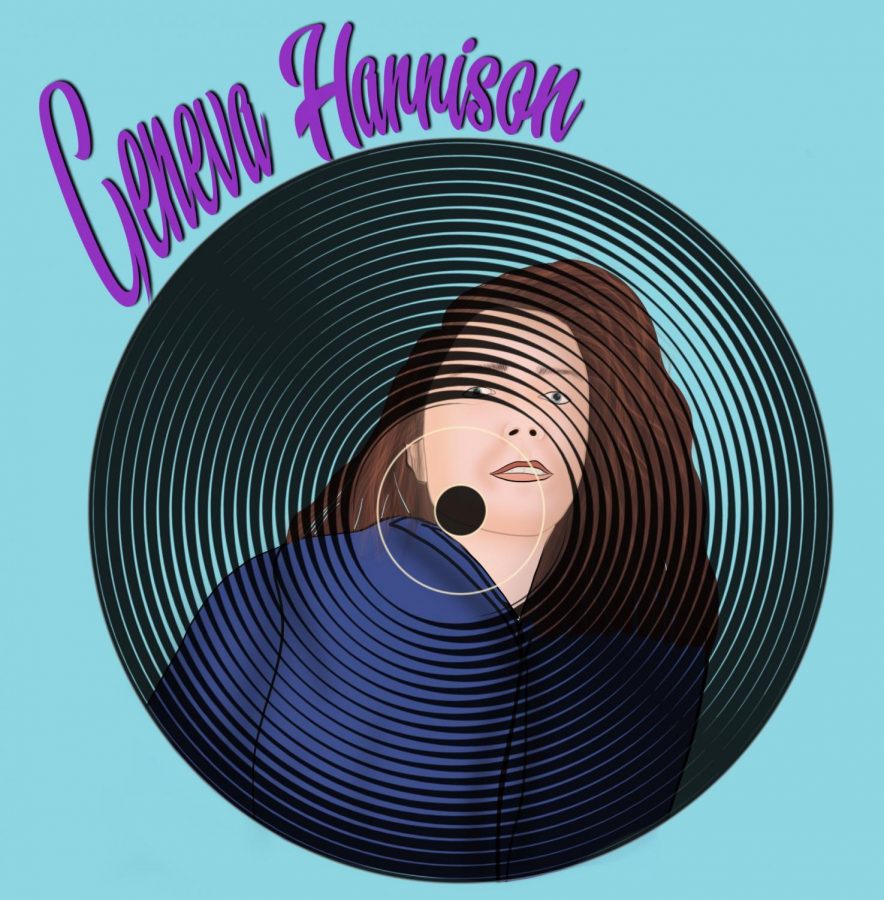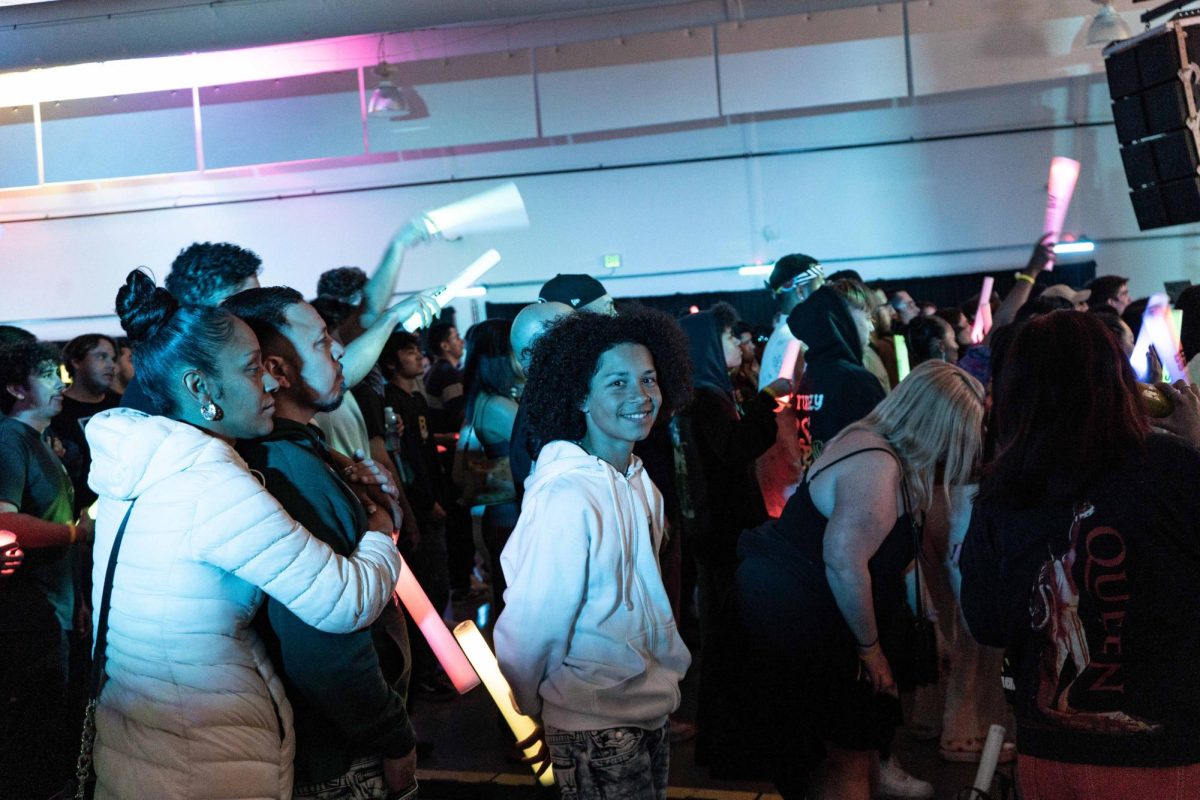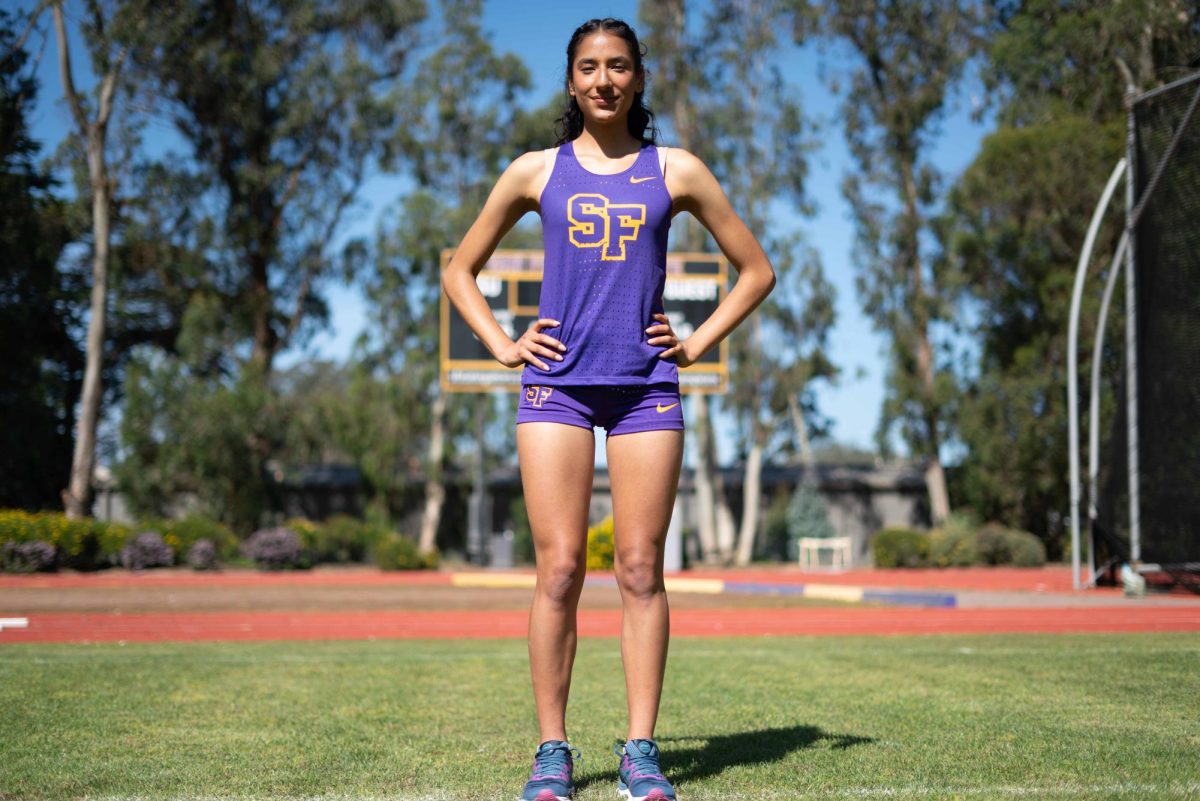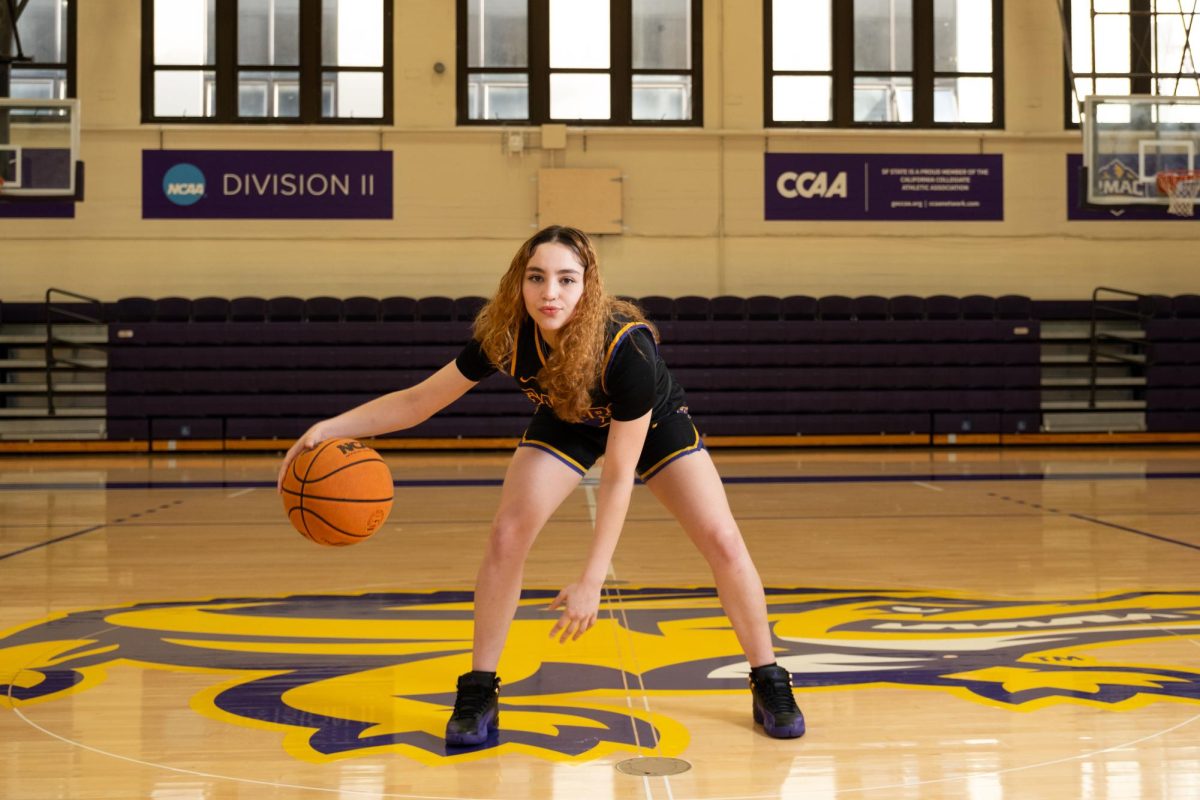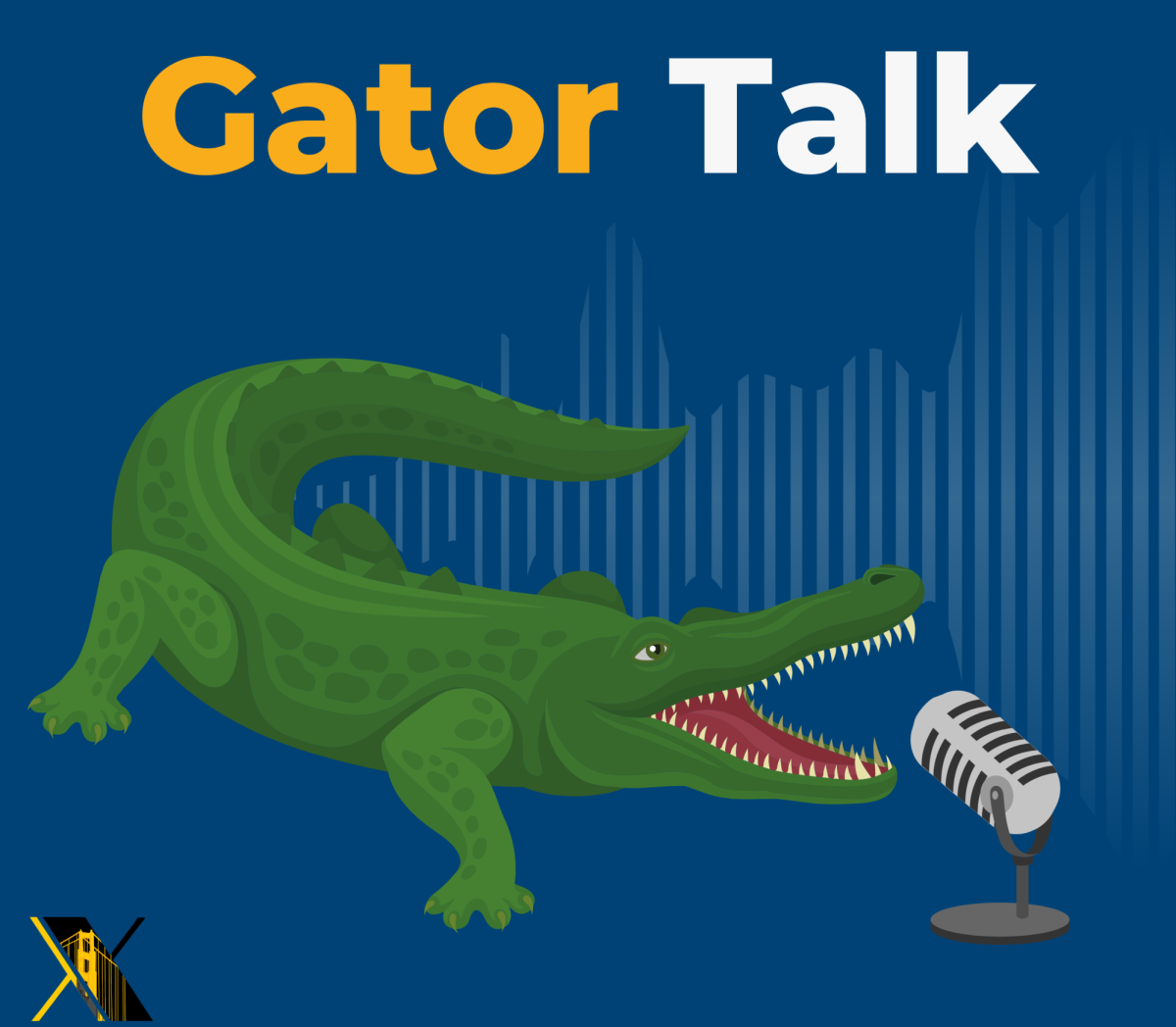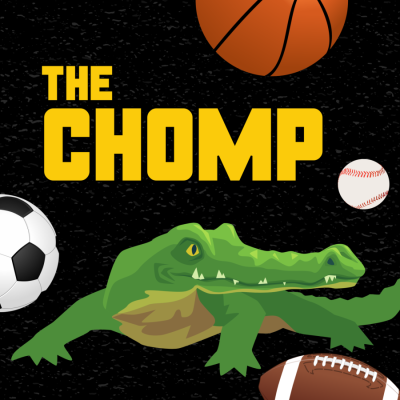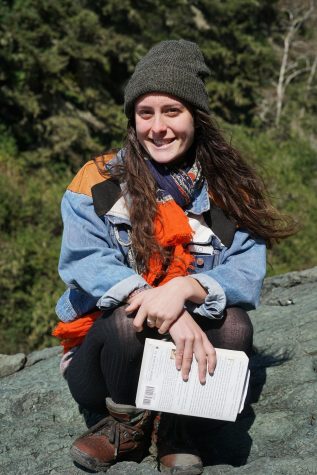Like many, the pandemic upturned percussionist Geneva Harrison’s plans for 2020.
She had just arrived in Spain, preparing for a month-long performance trip that she had hoped to expand into a few more months of exploring Europe. However, nearly as soon as she landed it was like the “opening scene of a disaster movie,” she described.
She had to return to her original departing destination, New York, where she spent time quarantining with friends before heading to her childhood home in Atlanta. While she has yet to come back to the Bay Area where her apartment is, she still says California feels like home.
Harrison has a variety of creative abilities including her skills in percussion, keys, drumming, choreography, composition, recording and production. She is a part of the Bay Area-based band Bells Atlas and has previously performed alongside Terence Blanchard and Van Dyke Parks.
Though the pandemic has slowed much of her typical work down, she is still practicing her skills and taking the time to reflect on her past few years that have been busy with touring and performance.
Parts of this interview have been condensed for clarity
Q: At what point in your life did your musical abilities develop?
A: It started at a very young age — actually the first kind of creative thing that I was involved in was dancing. I learned how to dance at the age of three, but I started playing piano when I was five. So I spent nearly all of my youth performing. When I was 12 years old, I stopped playing piano, stopped dancing, started playing basketball. I felt really weird not doing anything creative at that point. When you’re 12 years old and your entire life has pretty much consisted of that— I felt a huge void. I’d always kind of been interested in drums. I tried to get my parents to give me a drum set and let me start learning how to play drums. My mom was like, “That sounds like a really noisy hobby to have.” So, behind their backs, I joined band in middle school.
Q: Why did you go to college to study music and what was it like?
A: When I made that decision, it felt like that was my best avenue for getting as much knowledge as I possibly could. It’s funny because now, as I’m older and I’m independent, I look back on that and I don’t necessarily think that has to be the answer for everybody.
I’m a little bit curious that if I had approached music from a more independent standpoint as a young person, maybe my education would have just looked so much different. I was on this orchestral track and ended up having this deep passion for Latin and Brazilian percussion.
With the orchestral track, pretty much all of those musicians go to college — they go to music school, that’s the path. But for other styles of music — like hand drumming, really old, traditional styles of music — people don’t go to school for that. They just grow up with it and learn within their community and their culture.
No regrets — I had a really amazing experience in college. The whole percussion department was such a family. I feel really lucky. I went to [University of Miami’s Frost School of Music] that was not based around heavy competition with each other. It was actually based around heavy collaboration with each other.
Q: What is the creative process like in a collaborative setting, like in Bells Atlas?
A: Of all the projects I’ve been more heavily involved in life, that band is definitely one of the most collaborative. It’s always been a very democratic process. Everyone brings a lot to the table, which I wouldn’t say every collaboration does that. Initially, it did start with a couple people bringing most of the material to the table. Doug and Sandra, the bassist and singer, started the group. Then they brought Derek on and he added his flavor to it. Then I came into the picture and started playing a bunch of drums and percussion, vibraphone, keys and all this stuff.
The last album that we made was a really interesting fun process from a producer standpoint. It was not so much like, “I’ve got this idea, we [should] come into rehearsal and start messing around with it.” It was more like, “We’re just going to write on the spot and record in a bedroom and throw in these drum patterns that I’d recorded on my phone.”
Doug — he’d be playing keys or bass and I’d be playing keys or whatever. We would just be messing around playing stuff on top of drum beats blasting through the monitors. We’d be coming up with stuff and we’d lay stuff down. Sandra would be in the corner, just writing melodies and words as we were doing that. Then she’d come over and record her vocal parts. Then we put more stuff on top of it, creating new sections. We did that and essentially had more than an album’s worth of material in a month. Then brought Derek and was like, “Derek, come, just do whatever you want, or need to do on top of this.”
There’s a lot of momentum in that process. I think of creativity as this sort of wild living breathing wild energy. If you open yourself up to what you’re creating, if you allow the momentum to collect, it just adds more and more power to that creative energy.
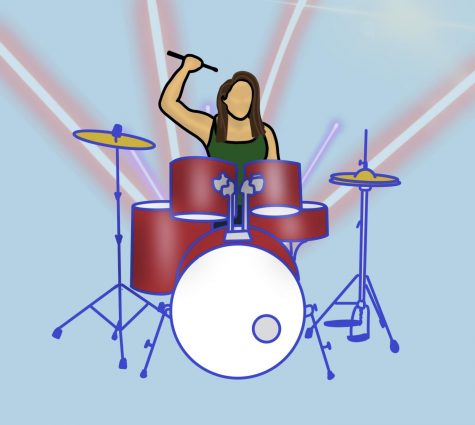
Q: Somehow as a culture we have developed gender stereotypes relating to instruments, and some see drum or percussion as a typically masculine instrument. Describe your experience as a woman who is a percussionist and drummer.
A: That topic comes up a lot, especially throughout my life as a percussionist and a drummer. I think part of it goes back to the history of drumming. I think it also has to do with our education system too. In some cultures around the world, women are not allowed to touch drums. I can’t help but kind of wonder if some of those ancestral older traditions have something to do with the patriarchal world.
Also, visibility is a huge thing. The college I went to, our percussion professor purposely made a lot of space for female percussionists to come through. That was something that he intentionally did. That makes a huge difference. I was always around, even before college, female percussionists quite a bit.
That changes something for me because I do feel at home in it. For me, teaching young people— I’ve taught way more male students than I have female students. I think it makes a big difference for the female students when they see a female teacher.
In high school, I was the only female percussionist until a certain year when a couple of the girls started coming in. Out of the drumline of 16, I was for a while the only female in my high school. Being around that many dudes at that age was really annoying. It took me really, really, really just wanting to play drums in order to put me there. It was easy for me to get picked on by those guys because I was the only girl.
As I’ve gotten older and I look back, that’s when I’ve started to actually think about it more. A few years ago, I was teaching at the jazz school in Berkeley. I was teaching a youth program one summer and out of all of those kids, there was only one girl in the entire jazz program.
It’s so sad to me because I admittedly did not dabble in jazz in college because I was nervous. I felt like I didn’t know enough. I just feel like that’s a lost opportunity.
Q: What is the feeling like when you are playing and you are satisfied with what you’ve created?
A: It just feels like such a joy to create. I do love playing by myself. I love discovering instruments or new sounds or new ways of playing things on my own. There is admittedly a place where when I’m in my own world, completely on my own, no one else is around. There’s a freedom in that. I think it can help me dream up all the possibilities so much more.
When I’m playing with other people there’s more accountability, especially as a drummer that you’re not dropping the ball for people. When you are in sync with other people, there’s a joy you get from that. And there’s just a feeling when you’re in the pocket with other people, or you’re really kind of like floating and vibing with other people.
[It’s a] very powerful feeling to know that you can connect with people without there being words, without there being physical touch, and it’s just purely through sound. There’s a weird, abstract kind of connection that can happen.
Geneva Harrison’s personal website can be found here. Bells Atlas can be found on Instagram, Youtube and Spotify.





